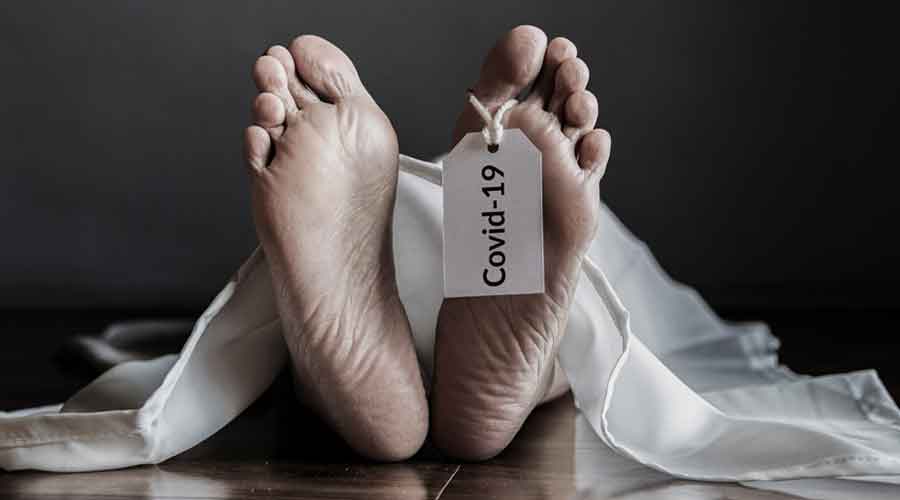The Centre on Monday cited the risk of virus transmission to inform the Supreme Court that bodies of Covid-19 victims could either be cremated or buried and, therefore, no concession could be granted to the Parsi community whose funeral rites involved exposing the body to nature for decay.
In an affidavit filed in the apex court, the Union ministry of health and family welfare cited scientific evidence and WHO guidelines to express the inability to concede Surat Parsi Panchayat Board’s plea to relax the guidelines and SoPs for disposal of bodies of Covid patients.
The Board had moved the Supreme Court after Gujarat High Court upheld the ministry’s guidelines.
According to Parsi community tradition, bodies are exposed to nature for decay in a well after being ceremonially laid to rest by pallbearers.
“…The MoH&FW, in consultation with Indian Council for Medical Research (ICMR), has issued guidelines for the disposal of dead bodies of Covid-positive persons. The basic element of these guidelines is that the dead body will be fully covered and not exposed so that people who are handling the dead body, which may or may not include family members, must not come in contact with bodily fluids or secretions.
“Coronavirus... can survive on a dead body, in bodily fluids, secretions and moist cells of the dead body for up to nine days. A dead body will be considered as an inanimate surface and secretions from orifices will carry infected cells and will remain smeared on the body surfaces after death.
“It is thereby submitted that, appropriate handling of dead bodies of Covid-positive patients remains critical from public health perspective,” the affidavit filed through Govind Jaiswal, director in the health ministry, stated.
While senior advocate Fali S. Nariman represented the Board, solicitor-general Tushar Mehta represented the ministry before a bench of Justices D.Y. Chandrachud and Surya Kant that adjourned the matter after taking on record the affidavit.
The ministry submitted that it had issued the guidelines based on clinical evidence that the coronavirus mainly spread through the respiratory route. “An increased risk of Covid-19 infection from a dead body to health worker or family members is unlikely for those who follow standard precautions and SOPs while handling a dead body,” it said.
It is further submitted that WHO, in its interim guideline dated September 4, 2020 on infection prevention and control for safe management of a body, had noted that if a person died of Covid-19 while he was infected, the lungs and other organs might still contain live virus even after death.
“The guidance by WHO also makes recommendations for disposal of dead bodies of Covid-19 patients by cremation or burial alone,” the Centre said.
According to the government, bodies of Covid-19 victims are likely to get exposed to the environment and animals if not buried or cremated properly.
“The OIE (World Organization for Animal Health) has also observed that the people who are suspected or confirmed to be infected with the Covid-19 virus should minimise close direct contact with animals, including wildlife. It has also been observed that several animal species have demonstrated susceptibility to the virus through experimental infection, and in natural settings when in contact with infected humans, although these infections are not the driver of the current Covid-19 pandemic which is human-to-human transmission. There is also evidence that infected animals can transmit the virus to other animals in natural settings through contact, such as mink to mink transmission, and mink to cat transmission,
“However, not all species appear to be susceptible to SARS-CoV-2. The OIE has also noted that there are valid concerns about the establishment of SARS-CoV-2 reservoirs in wild or domestic animals, which could pose a continued public health risk and lead to future spill over events to humans. The virus introduction to a new animal species from a dead body might accelerate its evolution, which could potentially impact on surveillance and control strategies.
“In view of the aforesaid concerns, keeping the dead body exposed (without cover) without burial or cremation will not be a permissible way of disposal of dead bodies of Covid positive patients,” the Centre added.










